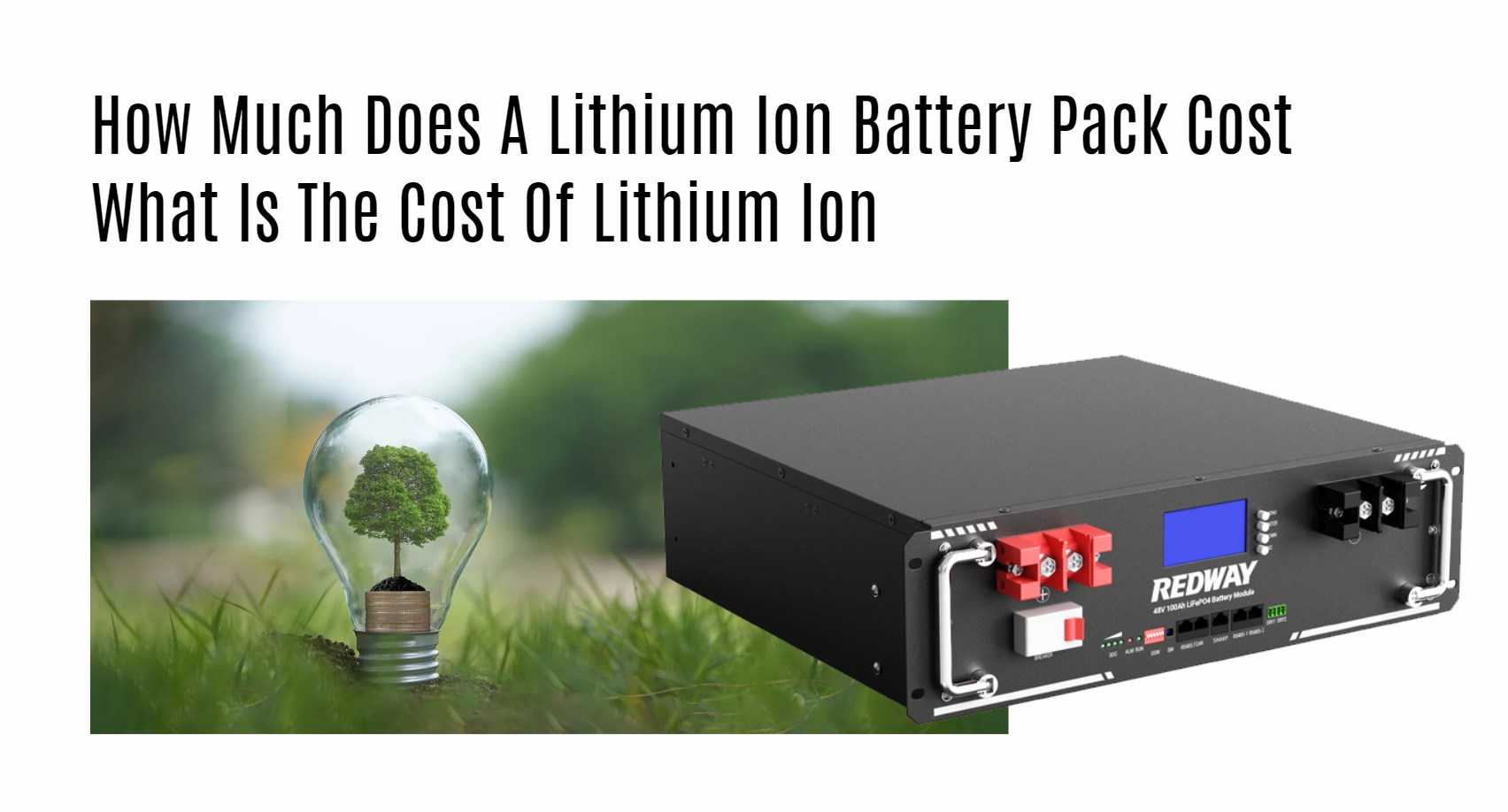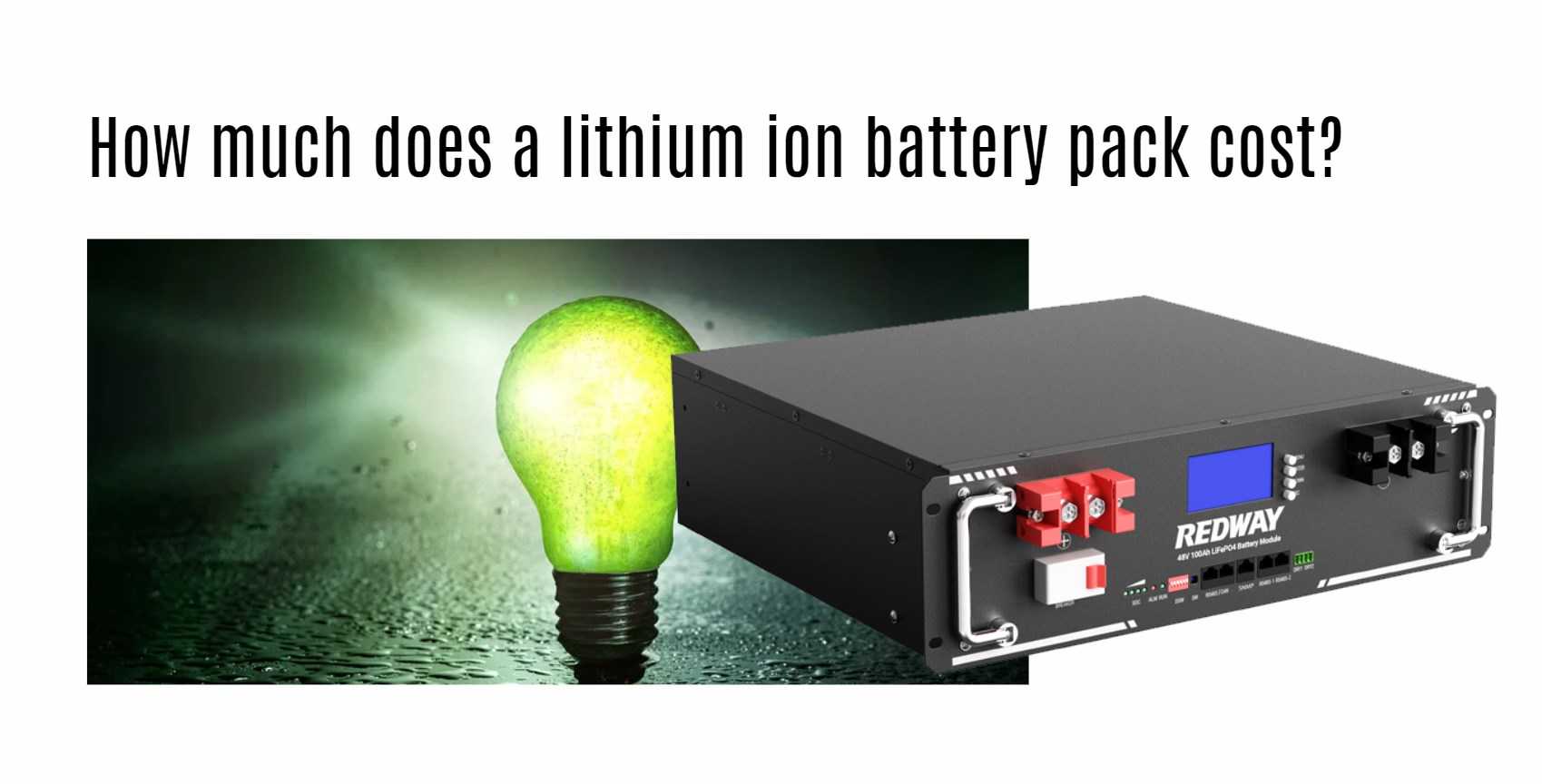Are you curious about the cost of lithium ion batteries? Look no further! Lithium ion batteries have become increasingly popular over the years due to their high energy density and longer lifespan compared to traditional batteries. However, many people are still in the dark when it comes to understanding how much these batteries actually cost. In this blog post, we’ll dive into the nitty-gritty details of lithium ion battery costs – from individual packs to large-scale installations – so you can make an informed decision before investing in one for your own needs. Let’s get started!
The cost of lithium ion batteries
-
Electric Vehicle Batteries: Electric vehicle batteries are the most expensive, typically ranging from $4,760 to $19,200. The cost varies depending on the auto manufacturer and does not include installation costs. Used or refurbished batteries can offer cost-saving alternatives.
-
Solar Panel Batteries: Solar panel batteries cost around $6,800 to $10,700. These batteries store excess energy for use when the sun isn’t shining, reducing dependence on the grid. The storage capacity and power of the batteries influence their price.
-
Outdoor Power Tool Batteries: Batteries for outdoor power tools range from $85 to $330. Factors such as voltage, amp hours, and brand affect the cost. Technological advancements have led to the development of battery-powered tools that can compete with gas-powered models.
How much does a lithium ion battery pack cost?
-
Electric Vehicle Batteries: Electric vehicle batteries are the most expensive, typically ranging from $4,760 to $19,200. The cost varies depending on the auto manufacturer and does not include installation costs. Used or refurbished batteries can offer cost-saving alternatives.
-
Solar Panel Batteries: Solar panel batteries cost around $6,800 to $10,700. These batteries store excess energy for use when the sun isn’t shining, reducing dependence on the grid. The storage capacity and power of the batteries influence their price.
-
Outdoor Power Tool Batteries: Batteries for outdoor power tools range from $85 to $330. Factors such as voltage, amp hours, and brand affect the cost. Technological advancements have led to the development of battery-powered tools that can compete with gas-powered models.
The benefits of lithium ion batteries
-
High Energy Density: Lithium-ion batteries have a high energy density, enabling them to store a significant amount of energy in a compact size. This makes them suitable for portable electronic devices like smartphones and laptops, where long battery life is essential.
-
Low Maintenance: Unlike some other rechargeable batteries, lithium-ion batteries do not require regular maintenance. They do not suffer from memory effect, eliminating the need for full discharge before recharging. This convenience makes them user-friendly and hassle-free.
-
Variety of Types Available: Lithium-ion batteries come in different types, each designed for specific applications. Some types offer high current density, making them ideal for consumer electronics. Others provide higher power levels, catering to power tools and electric vehicles. This versatility allows for the selection of the most suitable battery technology for different devices.
These benefits make lithium ion batteries an attractive choice for many applications where reliability and efficiency are important considerations.
Wholesale lithium golf cart batteries with 10-year life? Check here.
The disadvantages of lithium ion batteries
-
Protection / Battery Management System Required: Lithium-ion batteries need protection circuitry to prevent overcharging, over-discharging, and to maintain safe current levels. This circuitry ensures the battery operates within its safe limits, but it adds complexity and cost to the overall system.
-
Aging: Over time and with repeated charge-discharge cycles, lithium-ion batteries experience aging, resulting in a decrease in their capacity. This can be a concern, especially for devices with embedded batteries, as they may require replacement after a certain period.
-
Transportation Restrictions: Due to safety concerns, there are restrictions on transporting lithium-ion batteries, particularly when traveling by air. Airlines impose limitations on the number of batteries allowed and require certain protective measures to be followed.
-
Cost: Lithium-ion batteries are generally more expensive to manufacture compared to other battery technologies. The higher cost can be a significant factor, especially in mass-produced consumer items where cost optimization is crucial.
-
Developing Technology: The field of lithium-ion battery technology is continuously evolving, with new advancements and solutions being developed. While this offers the potential for improved performance and capabilities, it also means that the technology is not yet fully mature and may undergo changes over time.
Conclusion
To wrap it up, lithium ion batteries are a popular choice for many electronic devices due to their high energy density and long lifespan. The cost of these batteries varies depending on the size and capacity, but they are generally more expensive than other types of rechargeable batteries.
However, the benefits outweigh the costs as they offer better performance and durability compared to other alternatives. They are also eco-friendly since they can be recycled and do not contain harmful chemicals like lead or mercury.
Want OEM lithium forklift batteries at wholesale prices? Check here.
Despite their advantages, lithium ion batteries have some drawbacks such as being sensitive to extreme temperatures, prone to aging when left unused or overcharged, and can sometimes pose a safety risk if mishandled or damaged.
When choosing a battery pack for your device or project, it’s essential to consider your needs carefully. While lithium-ion batteries may cost more initially than other options in terms of longevity and reliability; they can save you money in the long run by providing superior performance over time without needing frequent replacements.







